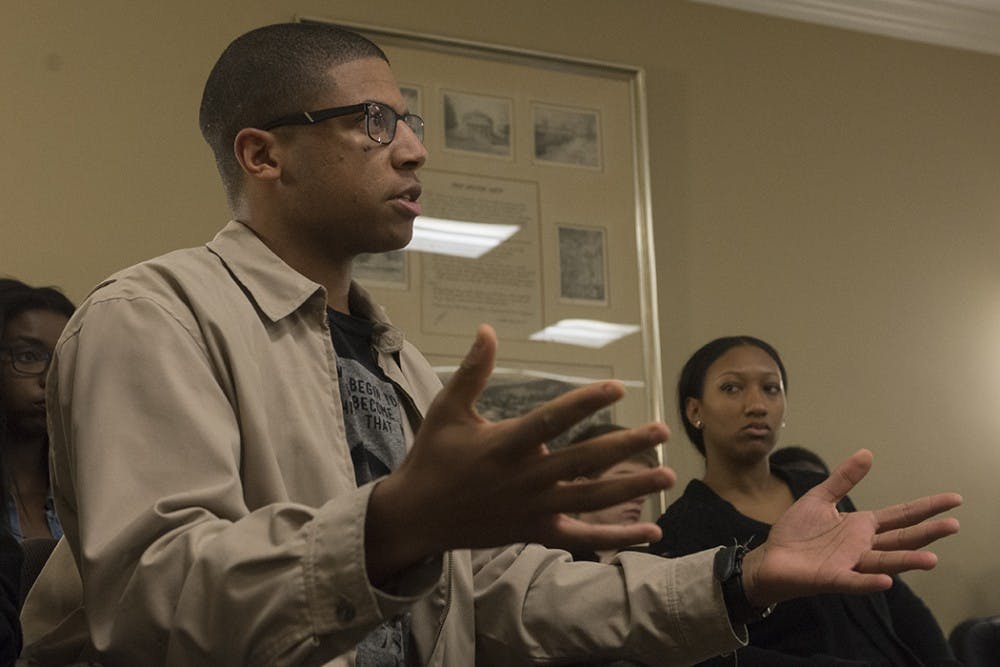The Honor Committee met Sunday night to discuss a proposed amendment to the Committee’s constitution that would lower the threshold needed in a referendum to amend the constitution from 60 to 55 percent support from students.
The amendment is being proposed independently of the Committee and this was the Committee’s first meeting to discuss the proposal publicly.
In order to successfully pass a proposed amendment in a referendum, the Honor Committee constitution also requires a successful amendment to receive support from at least 10 percent of University students who are eligible to vote. The current proposal does not affect this 10 percent requirement.
After roll call, Matt West, fourth-year College student and Honor Committee chair, opened the floor to community input. Several people spoke and expressed strong favor towards the proposal.
“We’re not asking for revolution,” third-year College student Wes Gobar said. “We’re asking for a five percent decrease in threshold. We’re asking it to be democratic.”
Fourth-year College students Nathan Gonzalez and VJ Jenkins, who is a member of the Committee, wrote the proposal. Jenkins said there will be a campaign to pass the referendum called the “Empowered 55.”
“I think it’s extraordinarily important to signal towards students that the Honor Committee is moving towards being more representative of the student will,” Jenkins said. “Oftentimes the critique of Honor is that we are not representative, we are not responsive.”
West said the Honor Committee was not consulted about the petition to get the referendum on the ballot before it was written.
“Had the Committee been consulted when this amendment was being crafted, that would have given the Committee sufficient time of whether or not to endorse,” West said. “We would have discussed not just whether or not to take a single stance, but what that stance should be.”
After community input, the Committee discussed their opinions on the referendum. West proposed taking a three-pronged approach to addressing it.
“First, the Committee will take no official stance on the amendment given the fact that we do not feel that it is best for the Committee to insert itself into the debate,” West said. “But that being said, I also recognize that it’s very important to give our opinions of the proposal as representatives in our respective schools and the University as a whole.”
The second initiative West suggested was to create an online repository in which Honor members post their opinions about the proposal individually. The third initiative calls for an impartial voter outreach effort before the voting period for University elections begins Feb. 21.
Jenkins pushed for the Honor Committee to take a single stance, instead of publishing individual opinions online. The Committee, however, decided to move forward with West’s three-pronged approach.
Amidst the disagreement was an agreed commitment to engage the community and obtain student opinion.
“I want ideas to come from the community,” Jenkins said. “I think the community should be able to push forward change.”
Jenkins said he thought being challenged by the other Committee members was beneficial, and that the meeting as a whole went well.
“I thought it was really great that some Committee members who originally came in and were opposed heard the comments of the community and said, ‘I have a new view of this, and because of this new view, I need to go back and I need to think about this and my opinion might actually change,’” Jenkins said.







